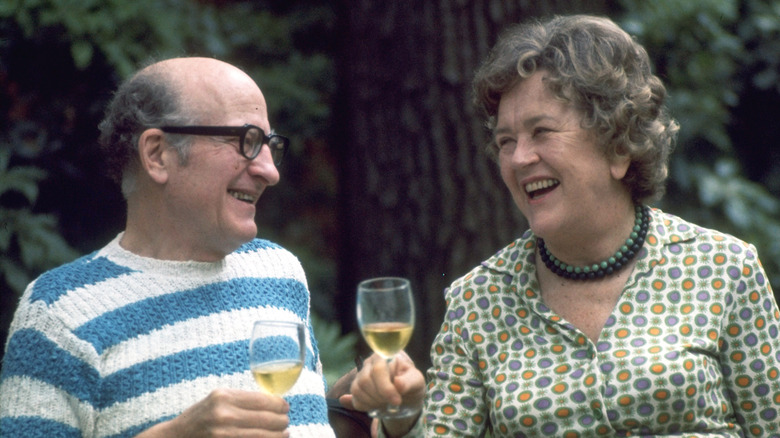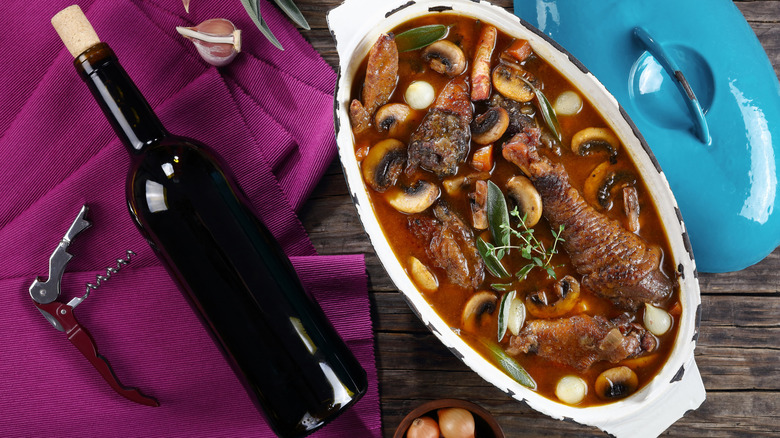Why You Should Never Cook With Cheap Wine, According To Julia Child
We may receive a commission on purchases made from links.
Julia Child was a cooking show pioneer and a timeless star whose words, to this very day, we still look toward for guidance in the kitchen like a North Star. She shopped without a list at farmers markets, she loved In-N-Out (and Costco's food court hot dogs), she worked magic by turning canned tuna into rich and creamy tuna salad, and she had one thing to say about cheap wine in cooking: Don't use it. Specifically: "If you do not have a good wine to use, it is far better to omit it, for a poor one can spoil a simple dish and utterly debase a noble one" (via The New York Times).
The message is clear. Cheap wines could ruin all meals, from the simple to the lavish. She suggested swerving cooking wine entirely and generally advised us to cook with wine that's good enough to drink on its own. The biggest difference between regular and cooking wine is the fact that cooking wine prioritizes shelf stabilization, meaning it has more preservatives and salt in it. That makes for a gnarly flavor that doesn't exactly cook out. From that angle, Julia Child made a good point, especially as good wine doesn't necessarily mean expensive wine. Basically, you should be fine as long as you're not getting the absolute cheapest stuff available — and even then, there's nothing wrong with cheaper brands like Two-Buck Chuck.
What wines and food pairings Julia Child enjoyed
Julia Child had quite a few things to say about alcohol as related to food in general. In her book "Mastering the Art of French Cooking," Child stated, "Food, like the people who eat it, can be stimulated by wine or spirits. And, as with people, it can also be spoiled." She had different suggestions for different meals, such as young and full-bodied red wines like Beaujolais for coq au vin (both for pairing and for cooking), or plain dry vermouth for a white cooking wine that's both long-lasting and versatile.
She also had opinions on the alcohols you drink with your food. She enjoyed sweet white wines with oysters, and rosé wines with pork or cold dishes at large, despite noting their overall versatility. Ultimately, though, it boils down to what you like and what you can afford. Though Julia Child may have stated that she would rather leave out alcohol altogether before adding in subpar spirits to a recipe, that doesn't necessarily have to be your gold standard. Especially with more robust dishes that have strong flavors, or dishes that have long or intense cook times where the alcohol will undergo a lot of chemical changes during the cooking process, you'll likely be just fine with a perfectly okay bottle of wine.


